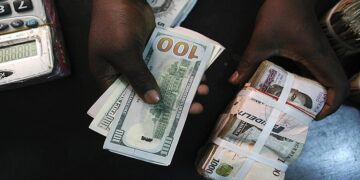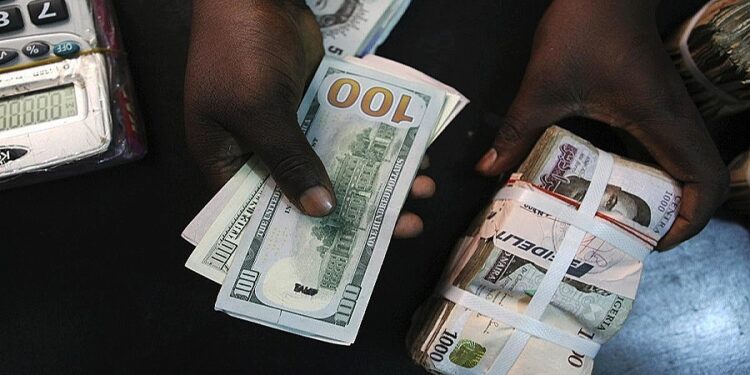By John Ikani
Nigeria’s Central Bank has initiated a float of the exchange rate, signalling a departure from its long-standing fixed foreign exchange policy.
The move aims to loosen control over rates and introduce greater flexibility.
In line with this development, leading banks in Nigeria have confirmed that the USD is now being exchanged at a buy rate of N699 and a sell rate of N700, reflecting the changing dynamics.
For years, Nigeria has maintained a tightly controlled official exchange rate, even as the country’s foreign exchange reserves reached alarmingly low levels.
However, most individuals and businesses found it difficult to obtain the USD at the official rates, prompting them to turn to the parallel market where prices soared to as high as $1/N755 this year.
This created a significant arbitrage opportunity and led the World Bank to recommend the merging of exchange rate windows on multiple occasions.
To manage the demand for foreign exchange, the Central Bank had previously restricted access to official rates for a list of 43 items and also imposed limits on FX access for students travelling abroad.
Despite these measures, the underlying demand issue persisted, compelling individuals and companies to resort to alternative channels.
The large gap between the official and black market rates remained a cause for concern, affecting various sectors of the economy.
The Buhari administration, prior to its election, had promised to improve the exchange rate situation but was initially hesitant to float the Naira.
Instead, it attributed the significant rate disparity to external factors and even pointed fingers at rate aggregation sites like Aboki Fx and other black-market operators for causing volatility in the FX markets.
However, mounting pressure from airlines and multinational companies demanding USD, coupled with reports of over $700 million being trapped in Nigeria by airlines in March 2023, intensified the need for action.
Foreign investors also faced challenges as they were unable to repatriate their profits from Nigeria, leading to a decline in foreign direct investments.
In fact, foreign investment in Nigeria reached record lows in Q2 2022.
While today’s managed float represents a positive step forward, immediate relief may not be forthcoming due to the backlog of FX demand, which remains substantial.
It is unlikely that banks will be able to fulfil this demand in the short term. As banks will now be responsible for sourcing their own FX supply, this move will eventually lead to a unification of exchange rates.
In theory, the float is expected to stimulate increased supply, and in the interim, the Central Bank is likely to intervene and provide banks with FX whenever necessary.
Nonetheless, today’s managed float brings much-needed clarity and a realistic approach that will be appreciated by investors who have been grappling with uncertainty in the FX market.




































